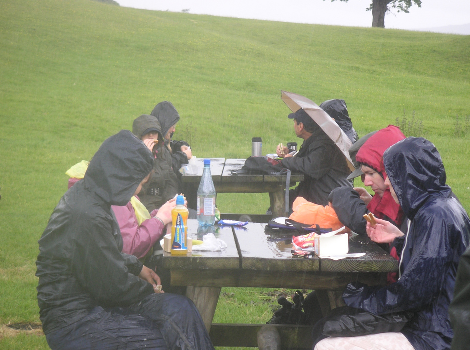Statistics for Decision Makers - 05.01 - Probability
<slideshow style="nobleprog" headingmark="。" incmark="…" scaled="false" font="Trebuchet MS" footer="www.NobleProg.co.uk" subfooter="Training Courses Worldwide" >
- title
- 05.01 - Probability
- author
- Bernard Szlachta (NobleProg Ltd) bs@nobleprog.co.uk
</slideshow>
Inferential Statistics and the problem with business examples。
If you choose an answer to this question at random, what is the chance you will be correct?
- 25%
- 50%
- 60%
- 25%
Inferential Statistics。
- Inferential statistics is built on the foundation of probability theory
- The idea of probability has been plagued by controversy from the beginning of the subject to the present day
- Approaches to probability
- Symmetrical Outcomes
- Frequentist
- Subjective
Symmetrical Outcomes。
If there are N symmetrical outcomes, the probability of any given one of them occurring is taken to be 1/N.
Relative Frequencies。
- If we tossed a coin millions of times, we would expect the proportion of tosses that came up heads to be pretty close to 1/2
- As the number of tosses increases, the proportion of heads approaches 1/2
- Therefore, we can say that the probability of a head is 1/2
Example。
If it has rained in Seattle on 62% of the last 100,000 days, then the probability of it raining tomorrow might be taken to be 0.62
...Is that correct?
Weather in Seattle。
- This is a natural idea but nonetheless unreasonable if we have further information relevant to whether it will rain tomorrow
- For example, if tomorrow is August 1, a day of the year on which it seldom rains in Seattle, we should only consider the percentage of the time it rained on August 1
- But even this is not enough since the probability of rain on the next August 1 depends on the humidity (the chances are higher in the presence of high humidity)
- So, we should consult only the prior occurrences of August 1 that had the same humidity as the next occurrence of August 1
- Of course, wind direction also affects probability ... You can see that our sample of prior cases will soon be reduced to an empty set
- Past meteorological history is misleading if the climate is changing
Frequentist Approach to Probability。
- Like most work in the field, the present text adopts the frequentist approach to probability in most cases
- Moreover, almost all the probabilities we shall encounter will be nondogmatic, that is, neither 0 nor 1
- An event with probability 0 has no chance of occurring; an event with probability 1 is certain to occur
- It is hard to think of any examples of interest to statistics in which the probability is either 0 or 1
- Even the probability that the sun will come up tomorrow is less than 1
Example。
- The weather forecaster says "there is a 10% chance of rain"
- You decide to have a picnic outdoors and, it rains
- Was the weather person wrong?
Blame the forecaster。
- No, she did not say it would not rain, only that rain was unlikely
- She would have been wrong only if she said that the probability was 0 and it subsequently rained
- However, if you kept track of her weather predictions over a long period of time and found that it rained on 50% of the days that the weather person said the probability was 0.10, you could say her probability assessments are wrong
- According to our frequency interpretation, it means that it will rain 10% of the days on which rain is forecast with this probability
Subjective Probability 。
- Outside of scientific interest
Quiz。
Quiz







